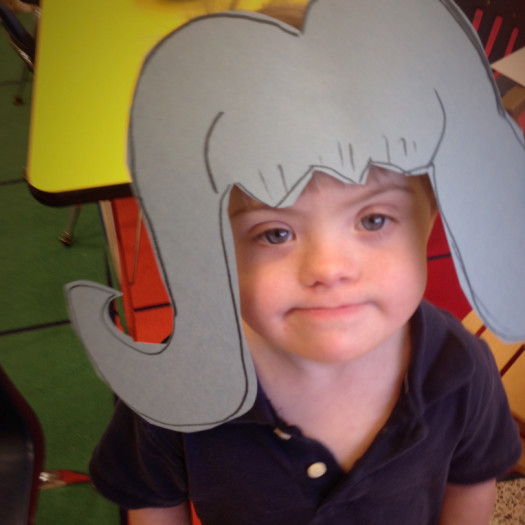
On a recent episode of Mad Men, Pete Campbell’s ex-wife, Trudy, calls him in a tizzy because their daughter didn’t get into the school they expected. Not a college or prep school, mind you…preschool. One reason cited for Tammy’s failure was her lack of skill in the “Draw a Man” test. I was reminded of a discussion I had recently about Nathan, preschool, and expectations.
Nathan has known all uppercase letters since he was two (yes, two!), mastering lowercase not long after. He knows his numbers to twenty, shapes, colors, and can count items in a set, and has begun to sight read. Most of these skills he acquired long ago, mostly due to TV and his participation in both private and public preschool. One of his teachers recently gave me a list of sight words he’ll be expected to be able to read by the end of his first semester of kindergarten; he knows them already.
By all academic measures, he should excel in kindergarten.
Plenty of research suggests that kids who participate in structured preschool programs do much better in kindergarten than their preschool-less peers; the research is a good deal murkier about how much of a long-term benefit it provides, though there is reason to believe a good preschool program correlates with higher performance down the line. It’s no wonder that some parents, like the fictional Trudy, fret over their choice of preschool when we’re constantly told how important it is.
But how important is it, and why?
It doesn’t take a genius to understand that a kid who already knows his letters, numbers, shapes, and colors may do better than a kid who doesn’t when those are the things that are being taught. You can coast when you know all the answers ahead of time. But just because a kid doesn’t know something initially doesn’t mean he won’t pick it up quickly, and when he does, the playing field levels and the margin of advantage narrows.
Despite what everyone and everything says, Nathan is smart. I’ve tried to temper my expectations for him, but I’ve asked his teachers and therapists what they think, and they agree with me. He may not be intellectually gifted like Sarah Kate, but he has proven he has the capacity to learn.
And in my opinion, the capacity to learn is the most important thing about preschool.
Nathan learned his ABCs on his own through (I presume) Sesame Street, Leap Frog toys, and maybe osmosis – I honestly don’t know because we didn’t work with him and it wasn’t until his early intervention speech therapist suggested we test him to see how many he knew that I had any idea he knew ANY letters, never mind ALL of them. Knowing letters was good, but realizing he’d learned them without much effort? The Best.
I’m glad Nathan knows what he knows, but I feel it was more important for him to learn how to take turns, follow directions, sit quietly in circle time, and all of those other school things that he could only learn in a structured group setting. For Nathan, a boy who is impetuous and has ants in his pants, I believe those are the lessons he needed more.
On the other end of the spectrum is Sarah Kate.
Because of her grades and test scores, Sarah Kate found out last week that she qualifies for placement in advanced classes in all of the core subjects in middle school next year. There’s been a lot of buzz among parents of her classmates since the letters went out; some are worried about whether the course load will be too much for their child, while also concerned that if they opt out their child will lose an advantage when it comes to AP (Advanced Placement and IB (International Baccalaureate) courses in high school.
I’m not worried about that at all.
Since the key metrics indicate Sarah Kate will do well in advanced classes, she’ll be in them next year. We signed the paperwork and sent it back in today. But if those key metrics turn out to be off the mark, or if the stress of the workload is too great, or if we just plain don’t see a benefit to it, then we’ll get off at the next stop and do something different. Her seventh grade GPA won’t count toward college admissions, so now’s the time to see how far she can stretch.
In the end, that’s really what the educational experience should be about: stretching minds. It’s not unlike the way we stretch our bodies. Some of us are born more flexible than others, but we can all improve – or regress – within the range of our limitations.

Thanks for this refreshing perspective!
Your family is perfect and, having known you since our middle schools days, it does not surprise me at all that your children are brilliant.
In my experience, advanced classes have better teachers.
Sometimes yes, sometimes no. I have friends in AP US History with a terrible teacher.
My friend hates her honors pre calc class because the teacher is bad. Rumor has it that the school board is trying to get rid of her.